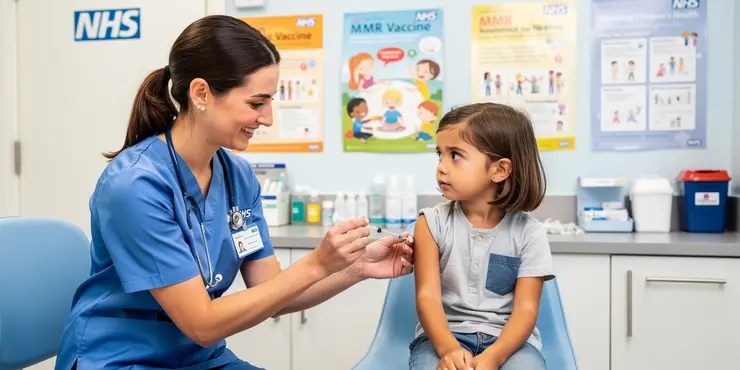
Find Help
More Items From Ergsy search
-
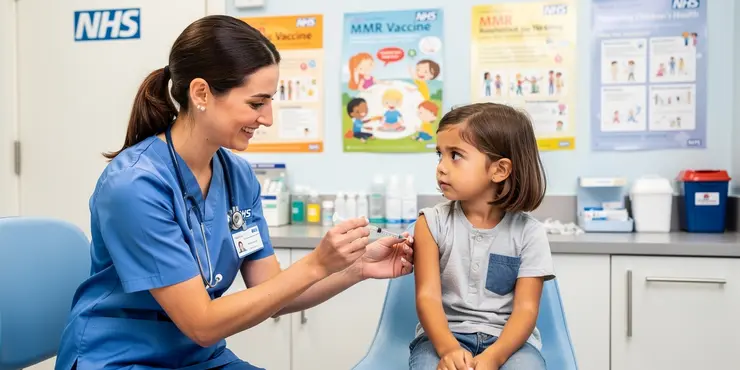
Can Rubella be prevented?
Relevance: 100%
-
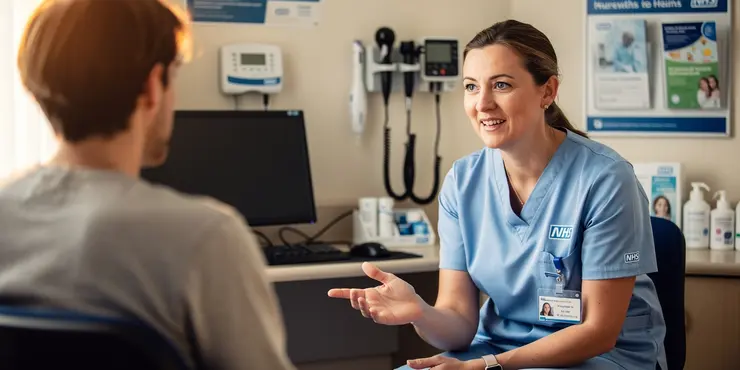
What is Rubella?
Relevance: 82%
-
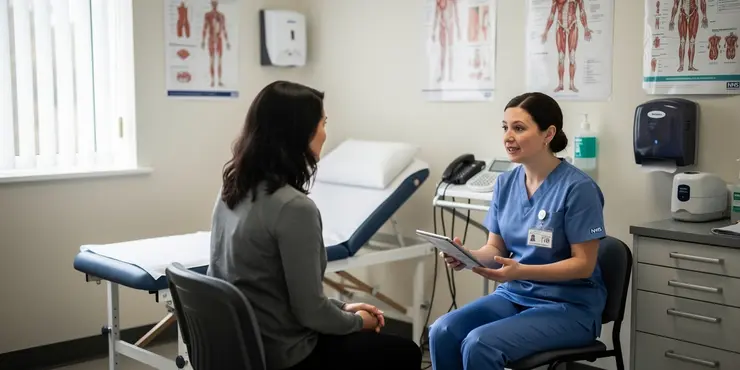
How is Rubella transmitted?
Relevance: 79%
-
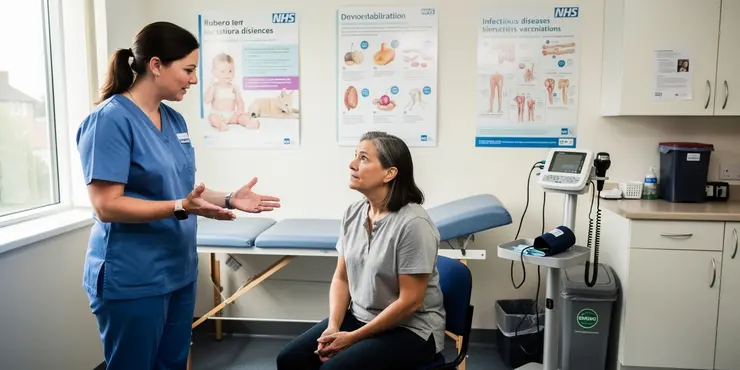
How serious is Rubella?
Relevance: 79%
-
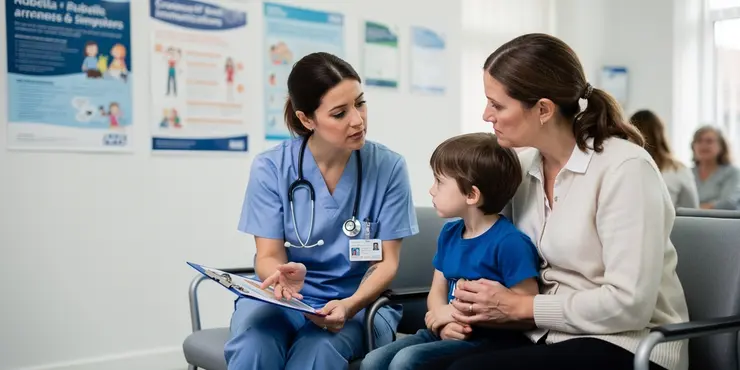
Is Rubella the same as measles?
Relevance: 78%
-
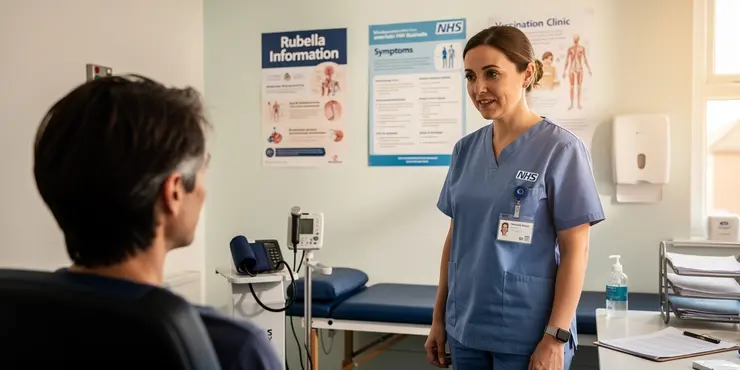
What are the symptoms of Rubella?
Relevance: 76%
-
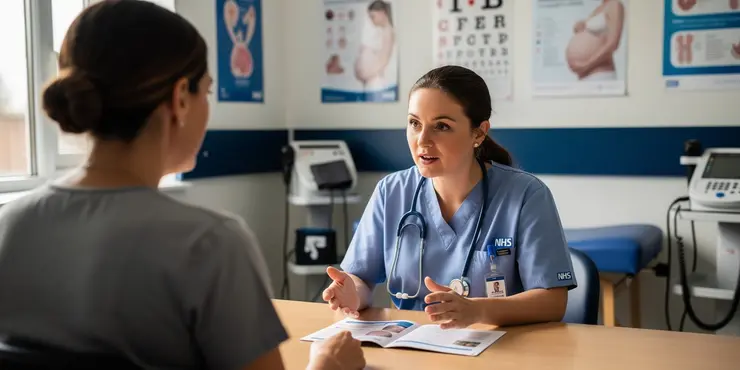
What is congenital rubella syndrome?
Relevance: 75%
-
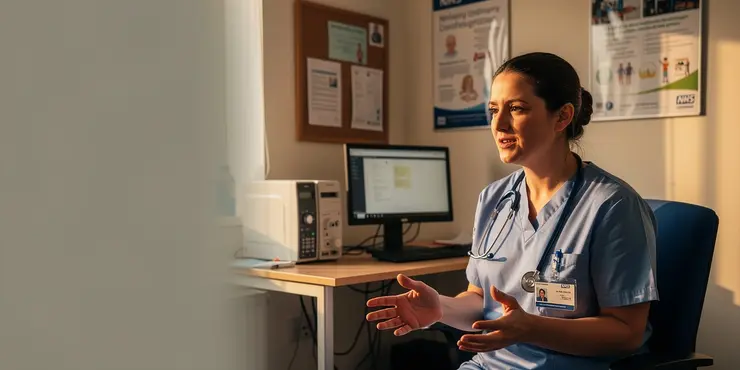
How is Rubella diagnosed?
Relevance: 73%
-
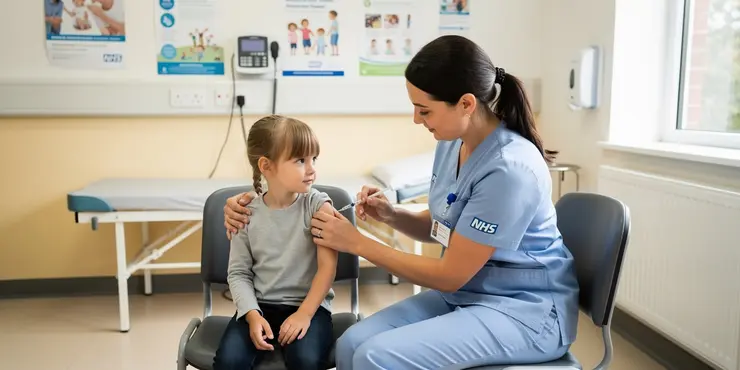
Who should receive the Rubella vaccine?
Relevance: 71%
-
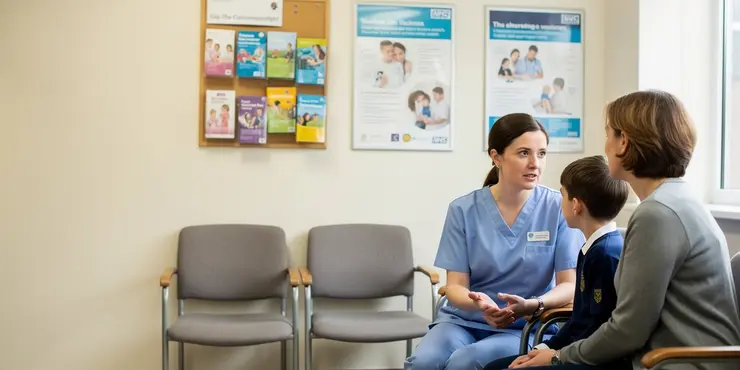
How can measles be prevented?
Relevance: 40%
-
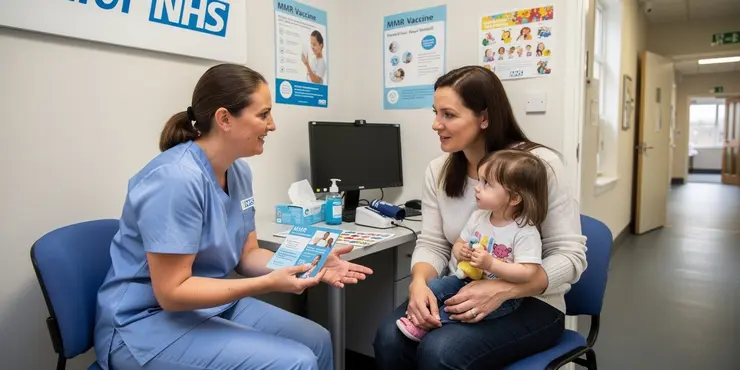
How can measles outbreaks be prevented?
Relevance: 38%
-
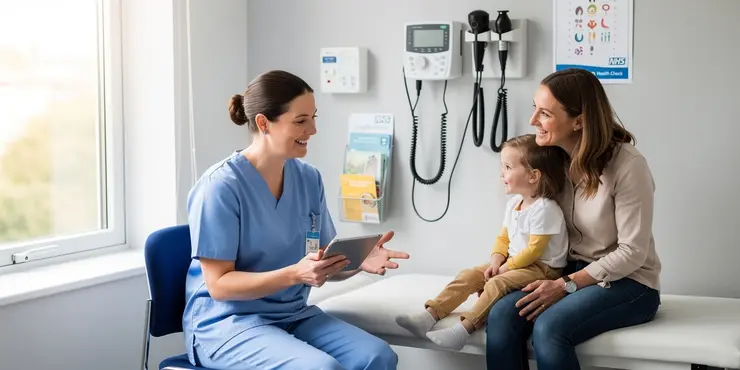
Preventative Care: What Your Family Needs
Relevance: 36%
-
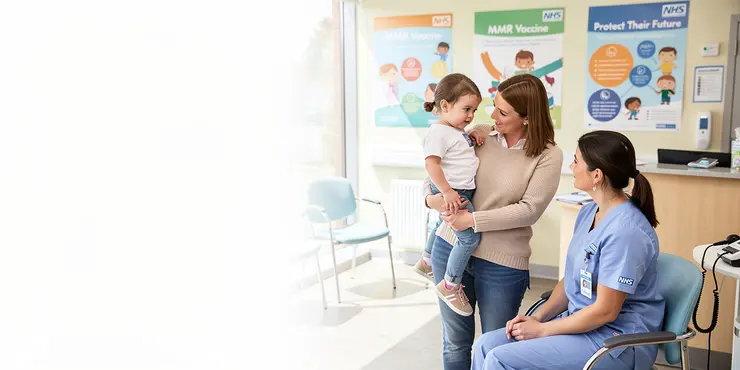
What is the MMR vaccine?
Relevance: 33%
-
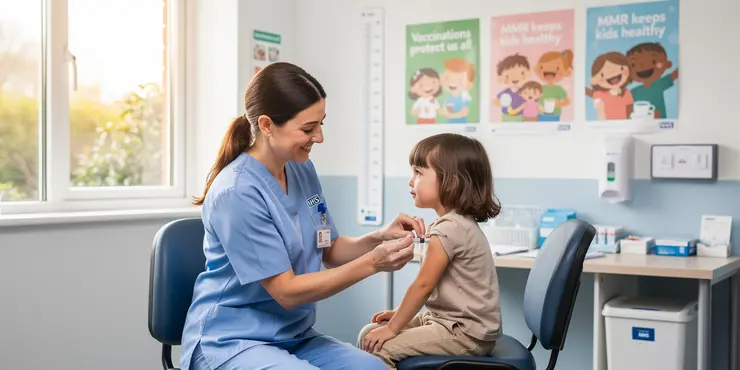
How effective is the MMR vaccine?
Relevance: 33%
-
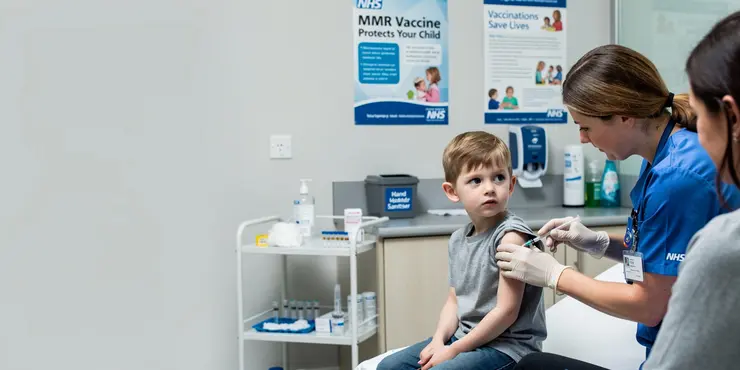
How effective is the MMR vaccine?
Relevance: 31%
-
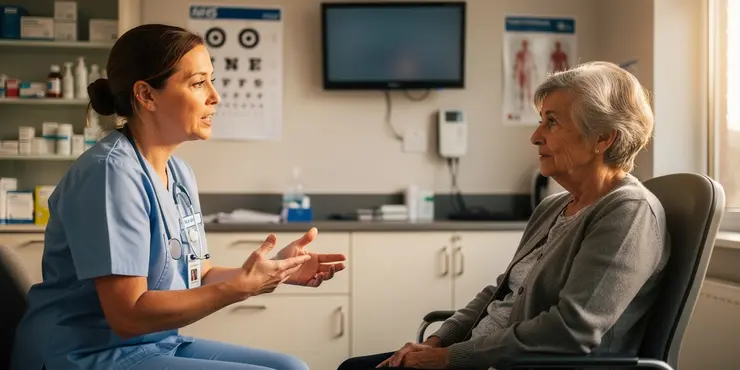
Can hypotony be prevented?
Relevance: 30%
-
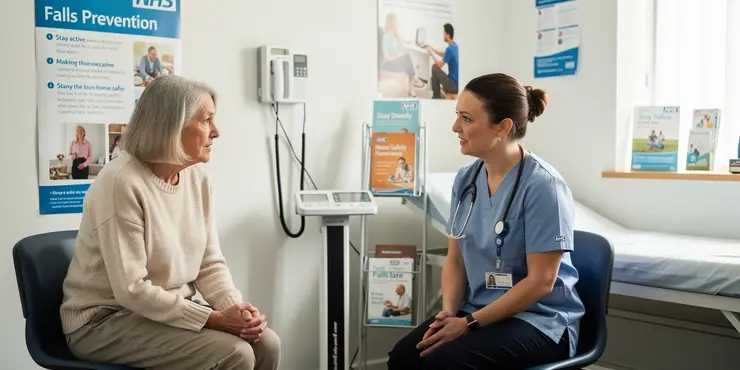
Falls Prevention Podcast
Relevance: 30%
-
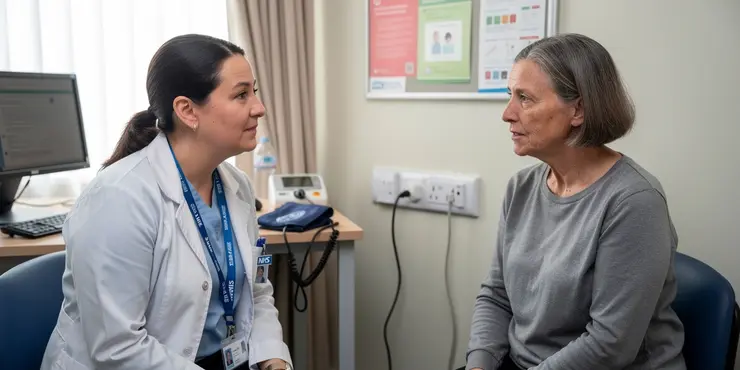
Can CFS be prevented?
Relevance: 29%
-
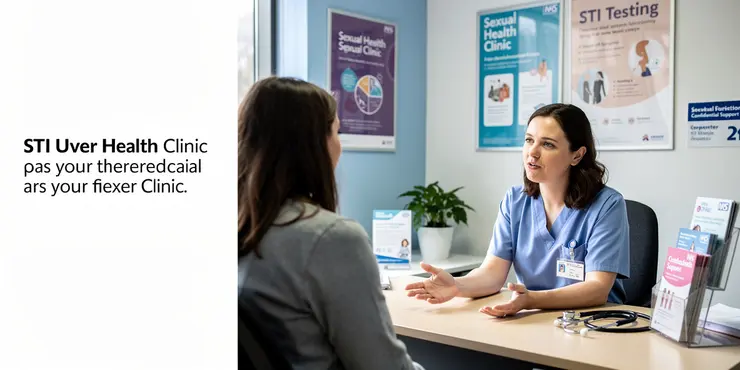
Can gonorrhoea be prevented?
Relevance: 29%
-
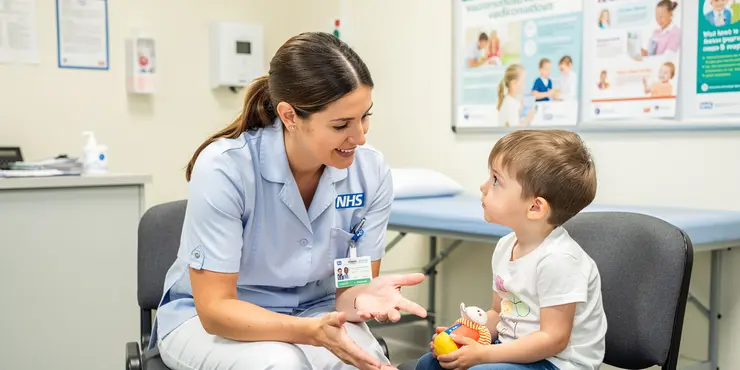
Can meningitis be prevented?
Relevance: 29%
-
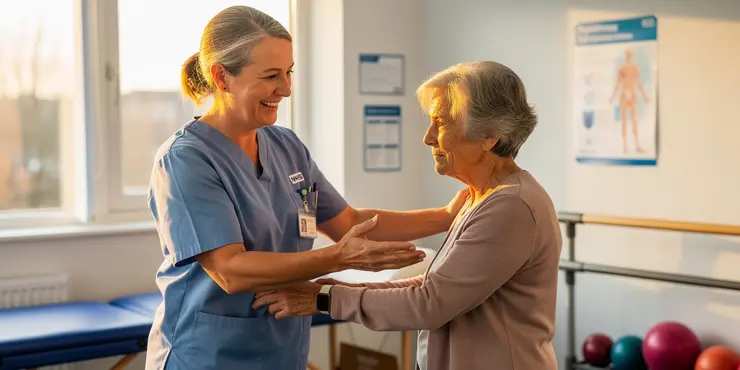
Falls and Falls Prevention
Relevance: 29%
-
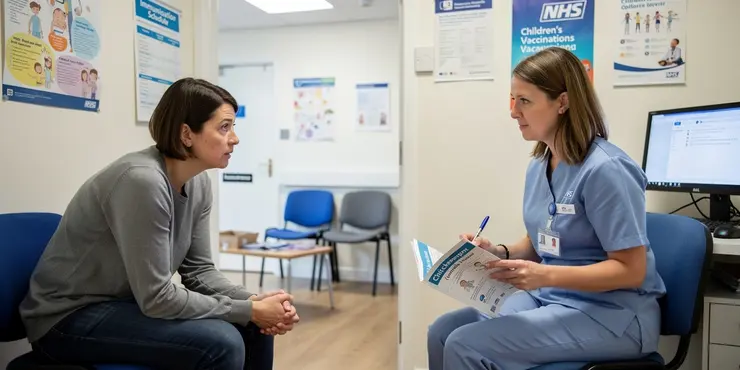
Can chickenpox be prevented?
Relevance: 29%
-
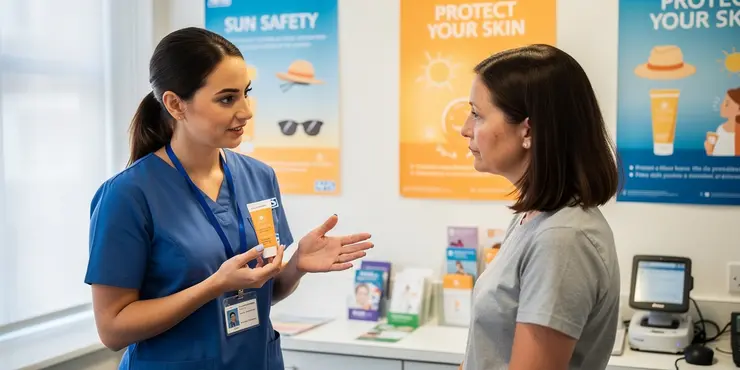
Can sunburn be prevented?
Relevance: 29%
-
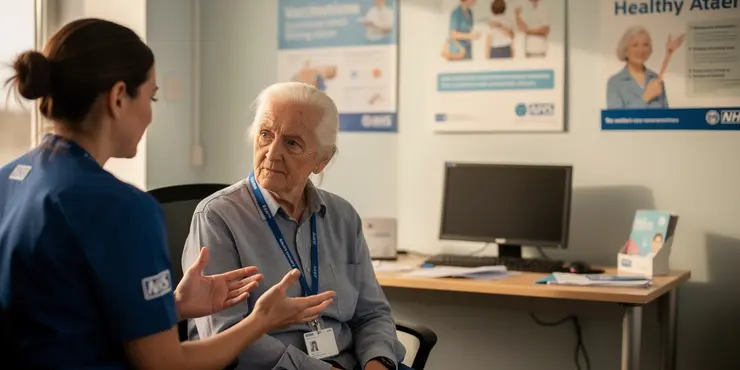
Can shingles be prevented?
Relevance: 29%
-

Is postnatal depression preventable?
Relevance: 29%
-
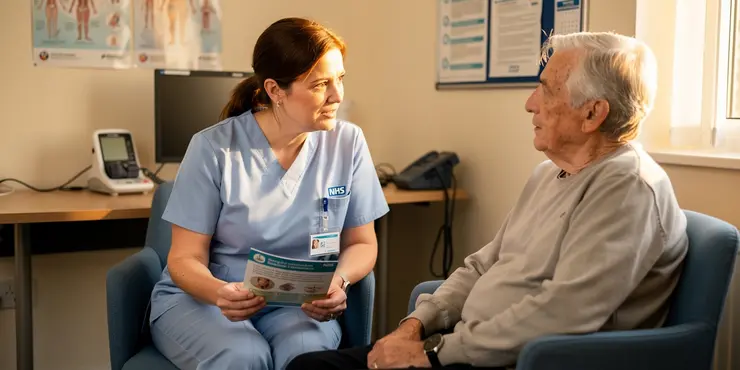
Can shingles be prevented?
Relevance: 29%
-
Are there preventative measures for eating disorders?
Relevance: 28%
-
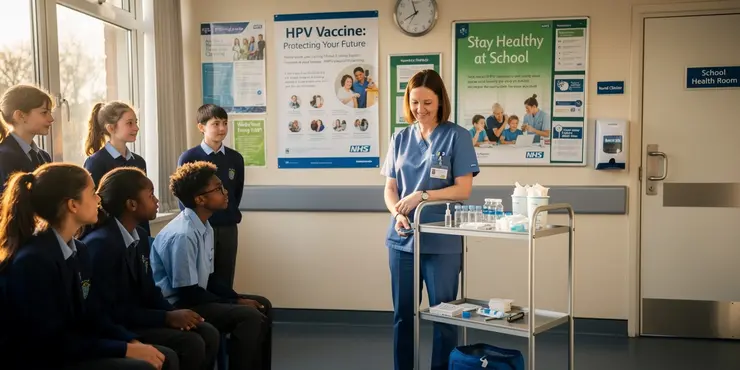
How can HPV be prevented?
Relevance: 28%
-
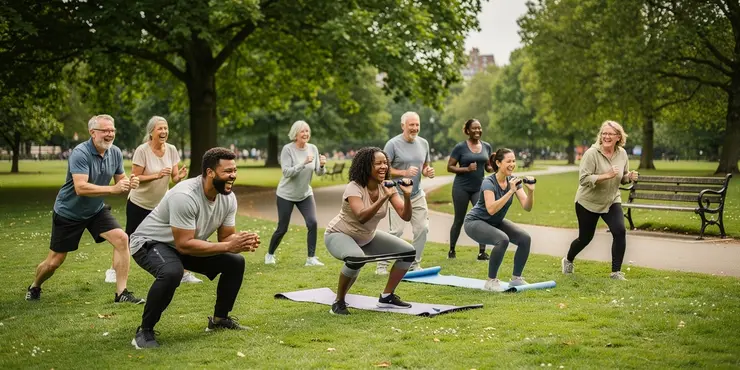
How can obesity be prevented?
Relevance: 28%
-
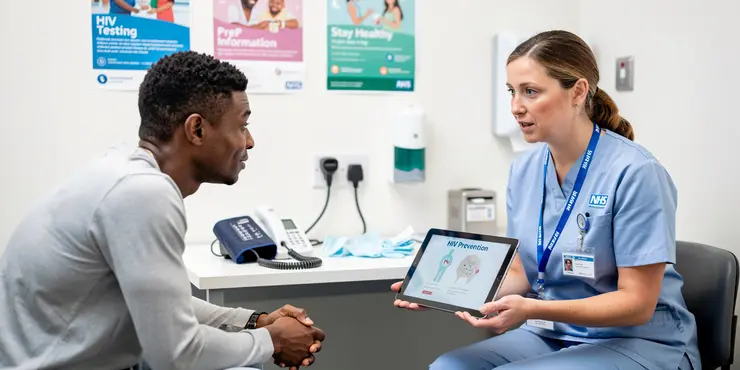
How can HIV be prevented?
Relevance: 28%
-
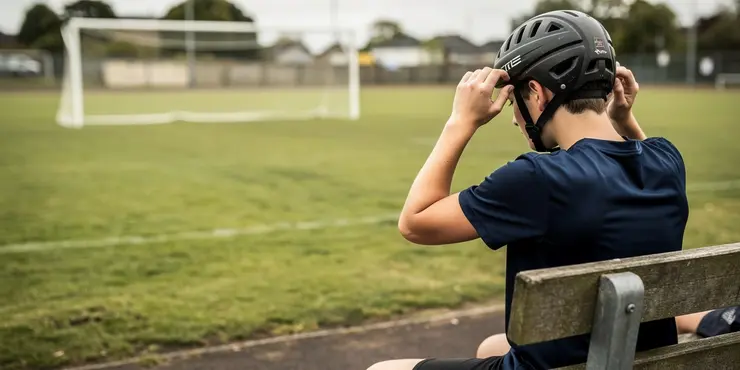
How can concussions be prevented?
Relevance: 28%
-
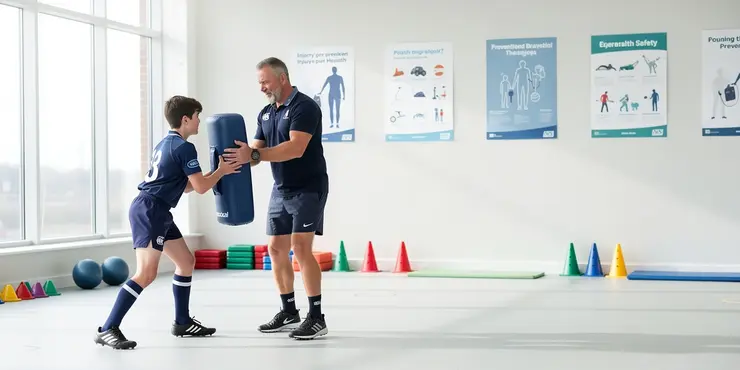
How can concussions be prevented?
Relevance: 28%
-
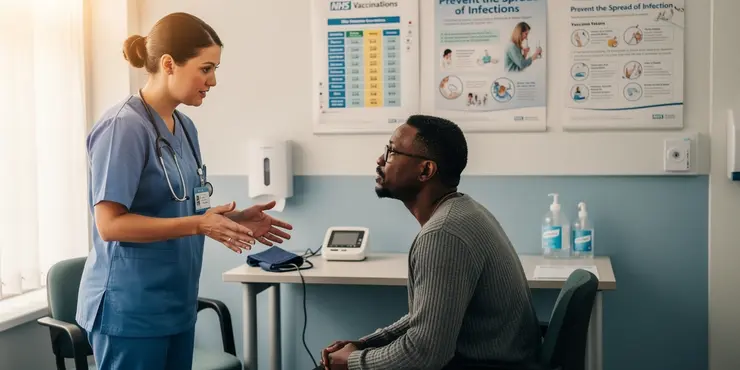
Can the bubonic plague be prevented?
Relevance: 28%
-
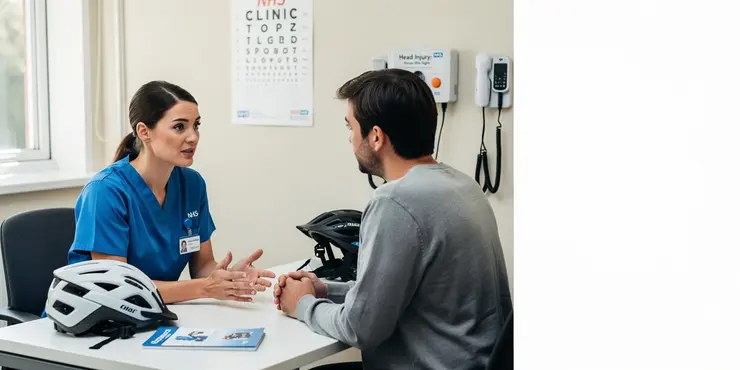
Is there any way to prevent concussions?
Relevance: 28%
-
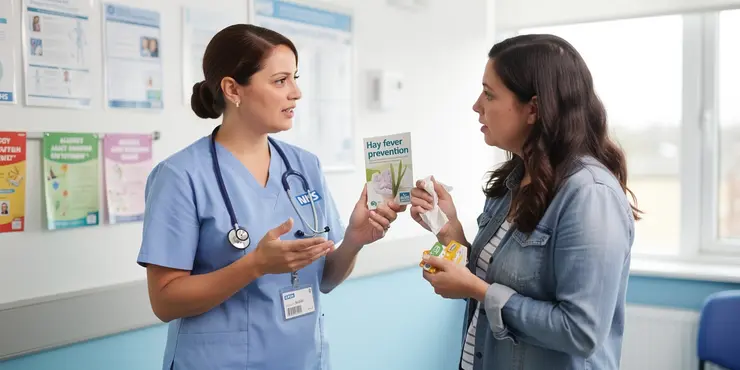
Can hay fever be prevented?
Relevance: 28%
-
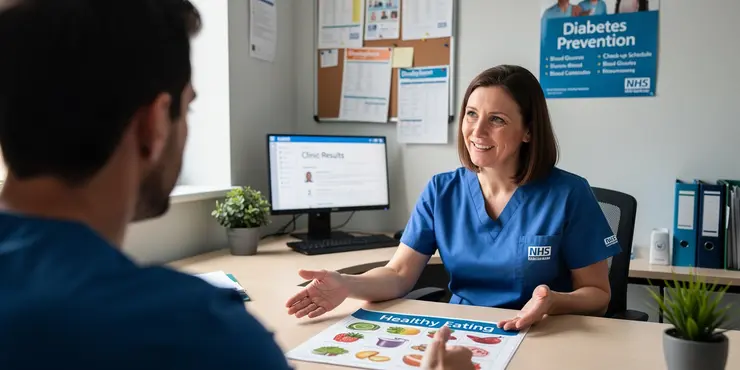
Can Type 2 Diabetes be prevented?
Relevance: 27%
-
Is it possible to prevent grooming entirely?
Relevance: 27%
-

Can heart failure be prevented?
Relevance: 27%
-
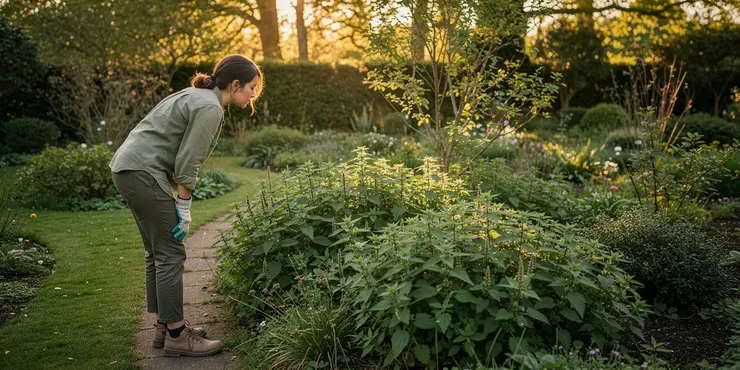
Can nettle rash be prevented?
Relevance: 27%
-
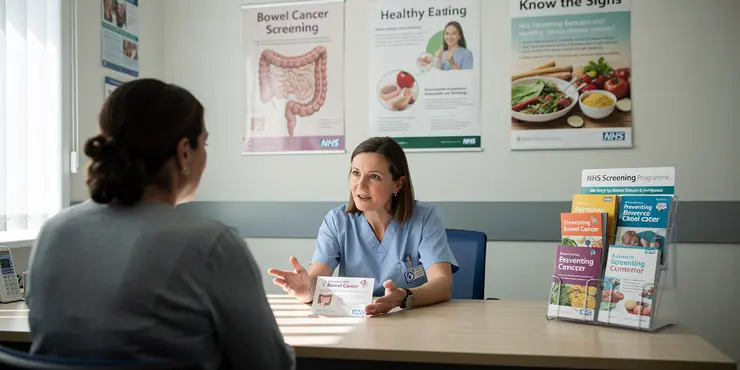
Can bowel cancer be prevented?
Relevance: 27%
Understanding Rubella Prevention
Rubella, also known as German measles, is a contagious viral infection preventable through vaccination. The disease is generally mild in children, but when contracted by pregnant women, it can lead to serious complications, including congenital rubella syndrome in the unborn child. It's vital for a country to maintain high immunity levels in its population to prevent potential outbreaks.
MMR Vaccine: The Key to Prevention
The primary method for preventing rubella is through vaccination with the Measles, Mumps, and Rubella (MMR) vaccine. In the UK, the MMR vaccine is part of the routine childhood immunisation programme. The vaccine is highly effective, offering over 95% immunity after two doses. It is crucial that individuals receive both doses for the vaccine to be fully effective.
Vaccination Schedule in the UK
In the United Kingdom, the first dose of the MMR vaccine is typically administered to children aged around one year. The second dose is usually given before they start school, typically at 3 years and 4 months. This schedule ensures high levels of immunity before children enter environments where they are more likely to be exposed to the virus. Additionally, the vaccine is available to anyone who missed these doses during childhood, providing an opportunity for everyone to be protected.
Importance of Herd Immunity
Maintaining high vaccination coverage in the population is crucial for herd immunity. Herd immunity occurs when a large portion of the community is immunised, making the spread of contagious diseases like rubella unlikely. This protects those who cannot be vaccinated, such as infants under one year or individuals with certain medical conditions. In the UK, public health efforts focus on keeping the MMR vaccination rate high to ensure widespread immunity and prevent outbreaks.
Addressing Vaccine Hesitancy
Despite the clear benefits of the MMR vaccine, vaccine hesitancy can still pose challenges. Misinformation about vaccine safety can lead to decreased uptake. It is important for healthcare providers and public health campaigns to effectively communicate the safety and necessity of vaccines. The MMR vaccine has been proven safe through extensive research and monitoring.
Conclusion
Rubella can be effectively prevented through vaccination with the MMR vaccine, a vital part of the UK's immunisation programme. Through widespread vaccination, it is possible to protect individuals and the public at large, reducing the risk of outbreaks and the serious consequences they can entail. High vaccination rates help ensure that everyone, especially the most vulnerable, are shielded from this preventable disease.
Understanding Rubella Prevention
Rubella is also called German measles. It is a disease that spreads easily, but we can stop it with a vaccine. Rubella is usually mild in children. However, if a pregnant woman gets rubella, it can cause big problems for her unborn baby. It is important for everyone in a country to be protected from rubella to stop it from spreading.
MMR Vaccine: The Key to Prevention
The best way to stop rubella is to get the MMR vaccine. MMR stands for Measles, Mumps, and Rubella. In the UK, kids get this vaccine as part of their usual shots. The vaccine works really well, giving protection to more than 95 out of 100 people after two shots. It is important to get both shots for the best protection.
Vaccination Schedule in the UK
In the UK, children usually get their first MMR shot when they are about one year old. They get the second shot before starting school, at around 3 years and 4 months. This way, they are well-protected before they are around more people. If someone didn't get the MMR shots as a child, they can still get them later to stay safe.
Importance of Herd Immunity
When most people are vaccinated, it helps protect everyone, even those who can't get shots. This is called herd immunity. Herd immunity makes it hard for rubella to spread. It protects babies less than a year old and people who can't have vaccines because of health issues. In the UK, it's important to keep MMR vaccination rates high to protect everyone from rubella.
Addressing Vaccine Hesitancy
Sometimes people worry about vaccines and don't want to get them. This is called vaccine hesitancy. Wrong information about vaccines can scare people away. That is why doctors and health campaigns share the facts about vaccines being safe and important. The MMR vaccine is very safe and has been studied carefully.
Conclusion
We can stop rubella with the MMR vaccine, which is part of the UK's health plan. By getting vaccinated, we protect everyone from getting sick and stop rubella outbreaks. High vaccination rates help make sure that even the most vulnerable people are safe.
Frequently Asked Questions
What is the most effective way to prevent rubella?
The most effective way to prevent rubella is through vaccination with the MMR (measles, mumps, and rubella) vaccine.
At what age should the MMR vaccine be given to children?
The MMR vaccine is typically given to children in two doses, the first at 12-15 months old and the second at 4-6 years old.
Can adults receive the MMR vaccine if they missed it in childhood?
Yes, adults who have not been vaccinated or who do not have immunity can receive the MMR vaccine.
Is the MMR vaccine safe?
Yes, the MMR vaccine is safe and well-studied, with side effects typically being mild and temporary.
Are there any people who should not receive the MMR vaccine?
People with severe allergic reactions to any component of the vaccine, pregnant women, and those with weakened immune systems should not receive the MMR vaccine.
Can rubella be prevented through means other than vaccination?
Vaccination is the primary and most effective means to prevent rubella. Other means, such as avoiding contact with infected individuals, are secondary and less effective.
Why is it important to prevent rubella?
Preventing rubella is important because it can cause severe birth defects if a woman is infected during pregnancy and can lead to outbreaks.
What are the potential complications of rubella if contracted?
Rubella can lead to congenital rubella syndrome in unborn children, causing severe birth defects or miscarriage when contracted by pregnant women.
How effective is the MMR vaccine at preventing rubella?
The MMR vaccine is about 97% effective at preventing rubella after two doses.
Is natural immunity from having rubella as a child sufficient protection?
Yes, contracting rubella typically results in lifelong immunity, but vaccination is a safer option to achieve immunity.
What percentage of the population needs to be vaccinated to prevent rubella outbreaks?
To effectively prevent rubella outbreaks, about 95% of the population needs to be vaccinated (herd immunity).
Can rubella still be a concern in countries with high vaccination rates?
Yes, rubella can still be imported from regions with lower vaccination rates, making sustained vaccination efforts critical.
How long does immunity from the MMR vaccine last?
Immunity from the MMR vaccine is long-lasting, likely lifelong in the majority of individuals.
What should be done if someone is exposed to rubella and is not vaccinated?
If someone is exposed to rubella and is not vaccinated, they should receive the MMR vaccine within 72 hours to possibly prevent the disease.
Are booster shots needed for the MMR vaccine?
Booster shots are not routinely recommended for the MMR vaccine beyond the initial two doses for most people.
Can pregnant women receive the MMR vaccine?
No, pregnant women should not receive the MMR vaccine. It is recommended to get vaccinated before pregnancy.
Is there a test to confirm immunity to rubella?
Yes, a blood test known as a titer can determine if a person is immune to rubella.
Why is it important for women of childbearing age to be vaccinated against rubella?
It's crucial to vaccinate women of childbearing age to prevent congenital rubella syndrome in their potential future pregnancies.
What should be done if a woman is planning to get pregnant and is unsure about her vaccination status?
She should have her immunity checked via a blood test and receive the MMR vaccine at least one month before trying to conceive if needed.
Can breastfeeding mothers receive the MMR vaccine?
Yes, breastfeeding mothers can safely receive the MMR vaccine.
How can you stop rubella from spreading?
The best way to stop rubella is to get a shot called the MMR vaccine. This shot protects you from three illnesses: measles, mumps, and rubella.
When should children get the MMR shot?
Children need the MMR shot to stay healthy. The MMR shot stops measles, mumps, and rubella.
Kids should get it two times:
- The first time at 1 year old.
- The second time when they are 4 to 6 years old.
Tools like calendars and reminders can help parents remember these important dates.
Children usually get the MMR vaccine in two shots. The first shot is when they are 12 to 15 months old. The second shot is when they are 4 to 6 years old.
Can grown-ups get the MMR shot if they did not get it as a child?
Yes, grown-ups who haven't had the MMR shot or aren't protected can still get it.
Is the MMR vaccine safe?
The MMR vaccine is safe. It helps protect you from three diseases: measles, mumps, and rubella.
Doctors and scientists check the vaccine to make sure it is safe.
Most people who get the MMR vaccine do not have problems. Some people may feel a little sore or get a fever, but this is okay and goes away fast.
If you have questions, talk to your doctor or nurse. They can help you understand and feel better.
For more help, you can use big pictures or videos to learn about the vaccine.
Yes, the MMR shot is safe. Doctors have studied it a lot. If there are any side effects, they are usually mild and go away soon.
Who should not get the MMR vaccine?
Most people can have the MMR vaccine safely. But some people should not get it. Here are some reasons why:
- If you are very sick with something serious, wait until you are better.
- If you are allergic to something in the vaccine, do not get it.
- If you are pregnant, do not get the vaccine.
- If you have a problem with your immune system, talk to your doctor first.
If you are not sure, ask your doctor or nurse. They can help you decide.
If you are very allergic to something in the vaccine, you should not get the MMR shot. Pregnant women should not get it either. People whose bodies find it hard to fight germs should also not get the MMR shot.
Can you stop rubella without getting a vaccine?
You can stay safe from rubella by doing these things:
- Wash your hands often with soap and water.
- Keep away from people who are sick.
- Cover your mouth when you cough or sneeze.
- Use tissues and throw them away after use.
Helpful tip: You can use pictures or videos to learn about staying healthy. You might find apps or websites that show you how to wash your hands.
Getting a vaccine is the best way to stop rubella. Staying away from people who have rubella can also help, but it's not as good as getting the vaccine.
Why Should We Stop Rubella?
Rubella is a sickness that can make you feel unwell. It is important to stop it because:
- Rubella can make some people very sick, especially babies.
- If a pregnant woman gets rubella, it can hurt the baby in her tummy.
- Stopping rubella helps everyone stay healthy.
Here are some ways to help stop rubella:
- Get the rubella vaccine (a special medicine to stop you from getting sick).
- Wash your hands often to keep germs away.
- Cover your mouth when you cough or sneeze.
If you have more questions, ask a doctor or nurse. They can help you.
Stopping rubella is important. It can make babies very sick if a mother gets it while she is pregnant. It can also spread to many people quickly.
What can happen if you get rubella?
Rubella is a sickness. It can make some people feel very unwell.
Here are some things that might happen if you get rubella:
- You might get a fever. This is when your body feels very hot.
- Your skin might get spots or a rash.
- You could feel very tired and need to rest a lot.
- If a pregnant woman gets rubella, her baby could be in trouble.
If you think you have rubella, it's important to see a doctor.
Using tools like pictures or listening to someone read can help you understand more.
Rubella is a sickness. If a pregnant woman gets it, her baby might get very sick. It can cause serious birth problems or the baby might not survive.
How well does the MMR shot stop rubella?
The MMR vaccine helps stop people from getting sick. It works really well. If you get two shots, it can stop rubella 97 out of 100 times.
Is it enough to have had rubella as a child to be safe from it?
If you had rubella when you were little, your body can usually fight it if you meet the virus again. This is called natural immunity.
Helpful Tip: Ask a doctor to check if you need a rubella vaccine. Blood tests can show if you are still protected.
Yes, catching rubella usually means you won't get it again. But, getting a vaccine is a safer way to stay safe from rubella.
How many people need a vaccine to stop rubella from spreading?
To stop rubella from spreading, almost everyone needs to get the vaccine. This means about 95 out of every 100 people should have the vaccine. This keeps us all safe!
Can rubella still be a worry in places where most people get vaccines?
Yes, rubella can come from places where people don't get vaccines. So, it is very important to keep giving people vaccines.
How long does the MMR vaccine keep you safe?
The MMR vaccine helps your body fight diseases. It works for a long time, usually for your whole life.
What to Do If You Are Around Rubella and Not Vaccinated
If you are near someone with rubella and have not had the rubella shot, here is what you can do:
- Go to the doctor as soon as you can.
- Tell the doctor that you have been around rubella and you do not have the vaccine.
- The doctor might give you a special shot to help protect you.
- Stay away from other people until the doctor says it is okay.
Ask a grown-up to help you understand this if you need to.
If someone is around a person with rubella and hasn't had the vaccine, they should get the MMR shot in the next 3 days. This can help them not get sick.
Do you need extra MMR shots?
MMR shots protect you from measles, mumps, and rubella.
Sometimes, people might need another MMR shot. This is called a booster shot.
Talk to your doctor. Ask if you need a booster shot.
Using pictures or videos can help you understand more about MMR shots.
Most people only need two MMR vaccine shots. You don't usually need more after that.
Can women who are having a baby get the MMR shot?
If you are going to have a baby, it is best not to get the MMR shot. The shot is for three illnesses: measles, mumps, and rubella. It is better to wait until after the baby is born to get the shot. Talk to your doctor or nurse if you have questions.
No, women who are going to have a baby should not get the MMR shot. It is best to get the shot before you become pregnant.
Can we check if someone is safe from rubella?
Yes, a blood test called a titer can show if someone is protected from rubella.
Why should women who can have babies get the rubella vaccine?
Women who can have babies need the rubella vaccine to stay healthy.
- Rubella can make women, and their unborn babies, sick.
- Getting the vaccine helps protect the baby from birth problems.
- It keeps the mom and baby safe and healthy.
Ask a doctor or nurse about the vaccine. They can help you understand more.
It's very important for women who might have babies one day to get a vaccine. This helps keep their babies safe from a disease called congenital rubella syndrome.
What to do if a woman wants to have a baby and is unsure about vaccines?
If a woman wants to become pregnant and does not know if she had her vaccines:
- She should talk to her doctor.
- The doctor can check her vaccine records.
- She might need some vaccines before getting pregnant.
- This will help keep her and the baby healthy.
She should get a blood test to check if she is protected from certain illnesses. If not, she should get the MMR shot at least one month before trying to have a baby.
Can mums who are breastfeeding get the MMR vaccine?
Yes, mums who are breastfeeding can safely get the MMR vaccine.
Useful Links
This website offers general information and is not a substitute for professional advice.
Always seek guidance from qualified professionals.
If you have any medical concerns or need urgent help, contact a healthcare professional or emergency services immediately.
Some of this content was generated with AI assistance. We’ve done our best to keep it accurate, helpful, and human-friendly.
- Ergsy carfully checks the information in the videos we provide here.
- Videos shown by Youtube after a video has completed, have NOT been reviewed by ERGSY.
- To view, click the arrow in centre of video.
- Most of the videos you find here will have subtitles and/or closed captions available.
- You may need to turn these on, and choose your preferred language.
- Go to the video you'd like to watch.
- If closed captions (CC) are available, settings will be visible on the bottom right of the video player.
- To turn on Captions, click settings .
- To turn off Captions, click settings again.
More Items From Ergsy search
-

Can Rubella be prevented?
Relevance: 100%
-

What is Rubella?
Relevance: 82%
-

How is Rubella transmitted?
Relevance: 79%
-

How serious is Rubella?
Relevance: 79%
-

Is Rubella the same as measles?
Relevance: 78%
-

What are the symptoms of Rubella?
Relevance: 76%
-

What is congenital rubella syndrome?
Relevance: 75%
-

How is Rubella diagnosed?
Relevance: 73%
-

Who should receive the Rubella vaccine?
Relevance: 71%
-

How can measles be prevented?
Relevance: 40%
-

How can measles outbreaks be prevented?
Relevance: 38%
-

Preventative Care: What Your Family Needs
Relevance: 36%
-

What is the MMR vaccine?
Relevance: 33%
-

How effective is the MMR vaccine?
Relevance: 33%
-

How effective is the MMR vaccine?
Relevance: 31%
-

Can hypotony be prevented?
Relevance: 30%
-

Falls Prevention Podcast
Relevance: 30%
-

Can CFS be prevented?
Relevance: 29%
-

Can gonorrhoea be prevented?
Relevance: 29%
-

Can meningitis be prevented?
Relevance: 29%
-

Falls and Falls Prevention
Relevance: 29%
-

Can chickenpox be prevented?
Relevance: 29%
-

Can sunburn be prevented?
Relevance: 29%
-

Can shingles be prevented?
Relevance: 29%
-

Is postnatal depression preventable?
Relevance: 29%
-

Can shingles be prevented?
Relevance: 29%
-
Are there preventative measures for eating disorders?
Relevance: 28%
-

How can HPV be prevented?
Relevance: 28%
-

How can obesity be prevented?
Relevance: 28%
-

How can HIV be prevented?
Relevance: 28%
-

How can concussions be prevented?
Relevance: 28%
-

How can concussions be prevented?
Relevance: 28%
-

Can the bubonic plague be prevented?
Relevance: 28%
-

Is there any way to prevent concussions?
Relevance: 28%
-

Can hay fever be prevented?
Relevance: 28%
-

Can Type 2 Diabetes be prevented?
Relevance: 27%
-
Is it possible to prevent grooming entirely?
Relevance: 27%
-

Can heart failure be prevented?
Relevance: 27%
-

Can nettle rash be prevented?
Relevance: 27%
-

Can bowel cancer be prevented?
Relevance: 27%


